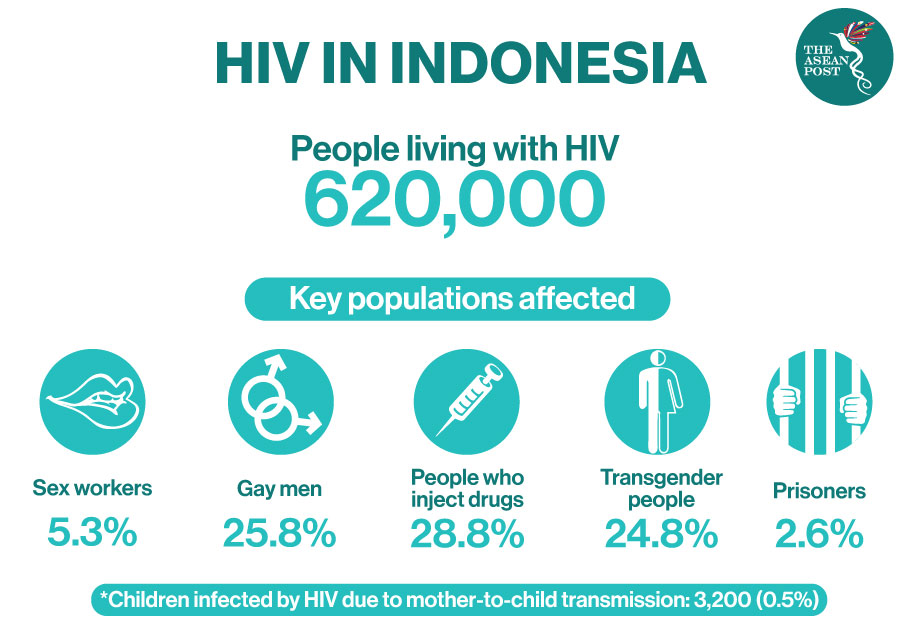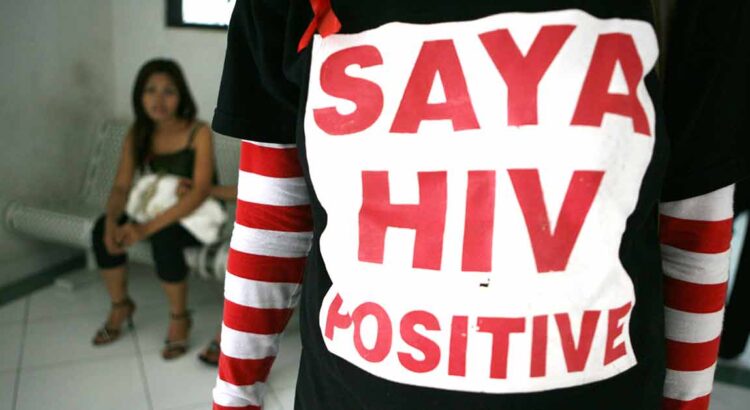Asia/ Indonesia/ 21.07.2020/ Source: theaseanpost.com.
According to the Joint United Nations Programme on HIV and AIDS (UNAIDS), HIV/AIDS in Indonesia is one of Asia’s fastest growing epidemics in recent years. As the world is currently battling a new coronavirus outbreak, old diseases such as the human immunodeficiency virus (HIV) remain a threat to many.
It was reported that more than half a million Indonesians are living with HIV. Nevertheless, because of the low understanding of the symptoms of the disease and high social stigma attached to it, some are suffering in silence.
An Indonesian activist, who is also a doctor, revealed that people who have contracted HIV in the country still face rampant stigmatisation and discrimination in the workplace. This was despite the existence of various regulations that are meant to guarantee people living with HIV their basic human right to work.
Local Indonesian media quoted the doctor who has treated HIV since 2000, Maya Tri Siswati, as revealing that one of her patients recently experienced such discrimination. Apparently, the company where the patient worked had fired him soon after he was identified as being HIV-positive.
«I’ve gotten so many reports of similar incidents in other companies, proving that discrimination against people with HIV is still rampant in the workplace,» she explained to the media.
Maya, a lecturer of medicine at Yarsi University who also serves as an International Labour Organization (ILO) consultant for HIV prevention and occasionally provides HIV education at a number of companies across the country’s capital Jakarta, suggested that medical school students should conduct a survey about the violation of the rights of people living with HIV in the workplace.
She said HIV-positive people who have undergone antiretroviral (ARV) treatment and consumed ARV drugs to suppress the HIV virus, as well as to stop progression of the disease, could still function normally like people without an HIV infection.
The activist was speaking to local media on the side-lines of a public lecture titled ‘HIV/AIDS Stigma and Discrimination in the Workplace: Time to Stop!’, which was facilitated by the University of Indonesia’s School of Medicine (FKUI) late last year.

Indonesia’s former health minister, Nafsiah Mboi who was also at the forum, said that Indonesia already had a number of regulations that were meant to guarantee that people living with HIV had the right to work. These regulations include the Manpower Ministerial Regulation No.68/2004 on HIV/AIDS prevention and control at the workplace. Nafsiah, however, admitted that these regulations were poorly enforced.
According to the regulation, she said, employers were obliged to – among other things – take steps to prevent and control the spread of HIV in the workplace and protect workers with HIV from discriminatory acts.
«However, we can still easily find discriminatory treatment against people with HIV in the workplace, especially when they are women,» Nafsiah said, adding that female sex workers often received «unfair» treatment from society while men who used their services could walk free from stigma.
Schools
But discrimination against people with HIV is not only present in the work environment nor is it only among adults. This is also the case with children who are either born with HIV or contracted the disease early in life.
In February 2019, it was reported that 14 students with HIV had been expelled from a public elementary school in the country following demands from parents of other students.
The headmaster of the Purwotomo Public Elementary School who, like many Indonesians, goes by the single name Karwi, told local media that the students in question had not been allowed to attend classes in the town of Solo in Central Java province.
He said that the school’s explanation on how HIV is transmitted failed to convince the concerned parents, who threatened to move their children to another school if it did not expel the students suffering from HIV.
Treatment for HIV has come a long way since the early days. Both, Nafsiah and Maya have urged all stakeholders to work hand in hand with Indonesian society to tackle discrimination against workers with HIV as they could still work like other people as long as they underwent proper medical-treatment.
Source of news: https://theaseanpost.com/article/indonesia-hiv-discrimination-institutions







 Users Today : 21
Users Today : 21 Total Users : 35459616
Total Users : 35459616 Views Today : 55
Views Today : 55 Total views : 3418027
Total views : 3418027